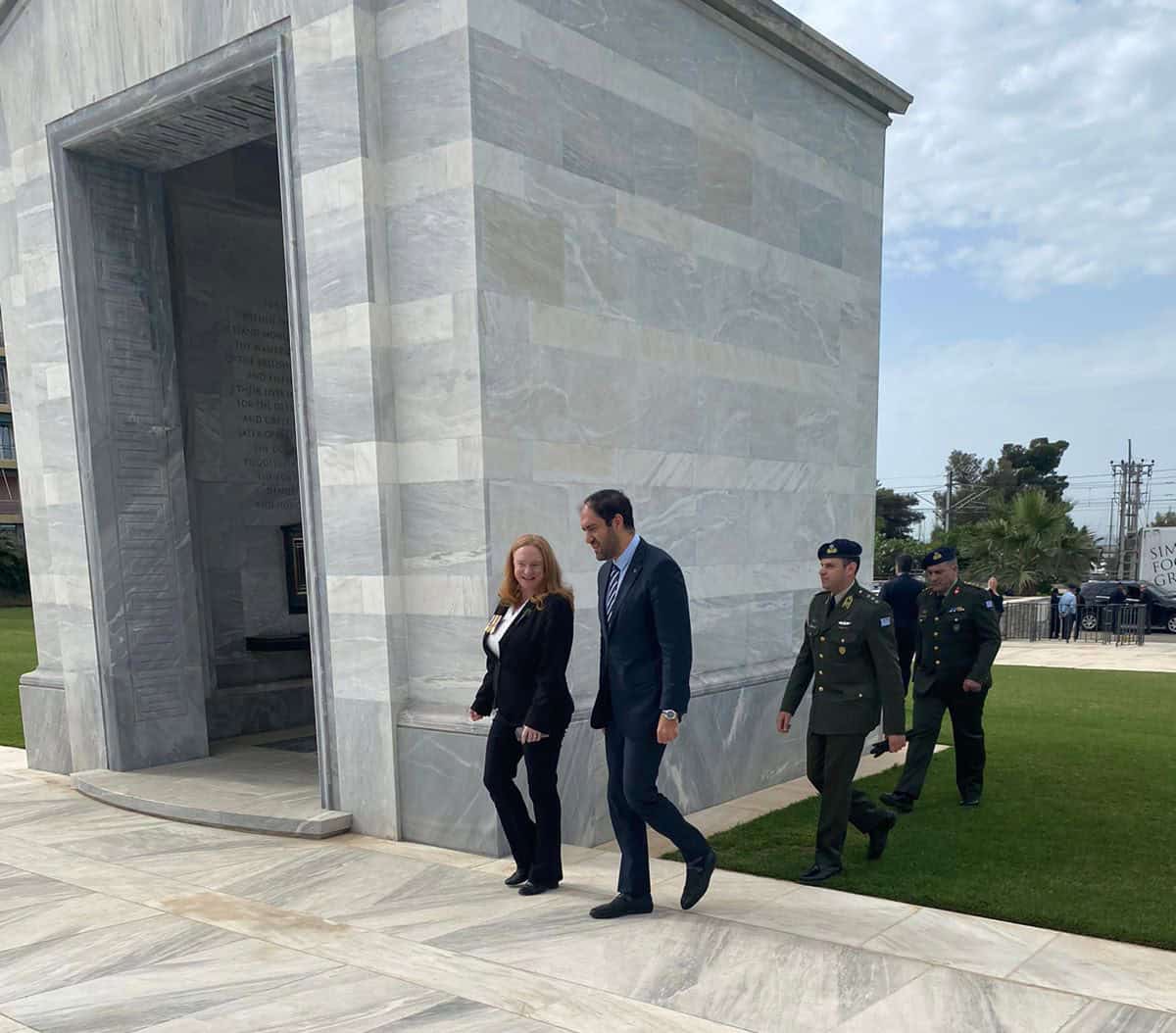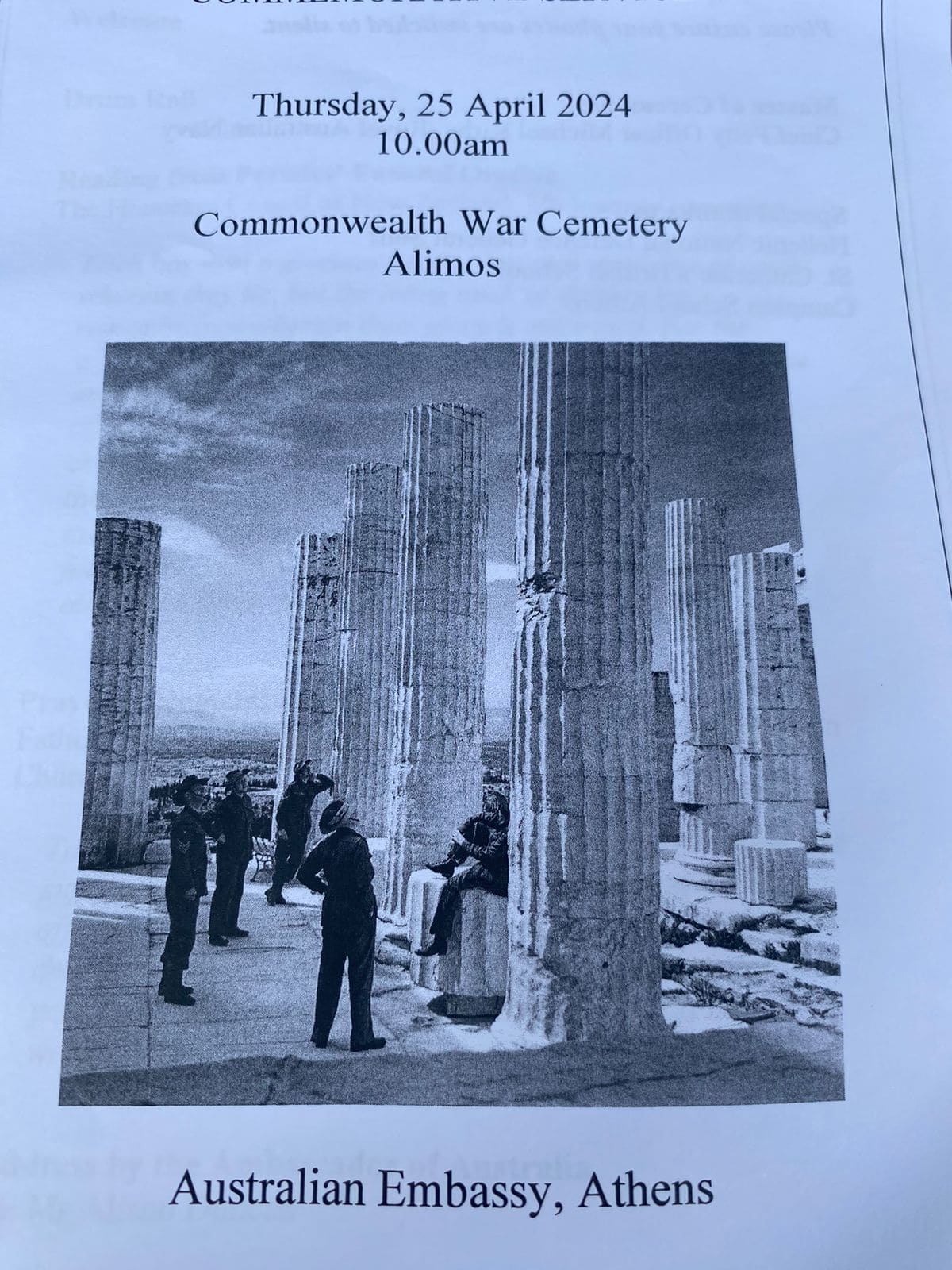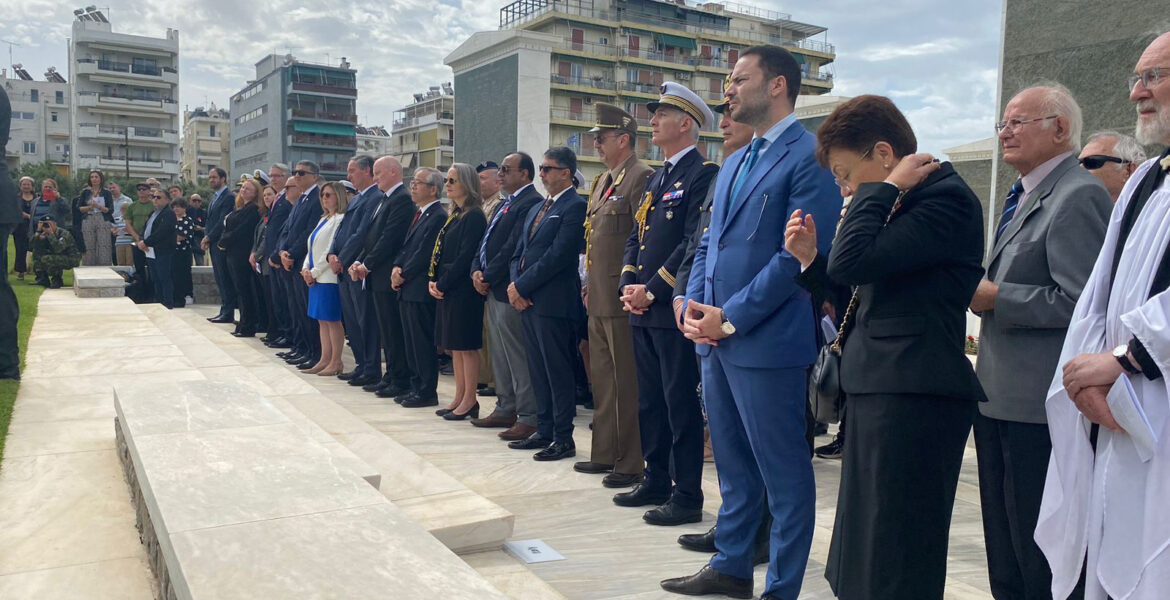The Australian Ambassador in Athens Mrs Alison Duncan and embassy staff honoured Anzac Day with a special ceremony at the Commonwealth War Cemetery at Alimos today April 25, which was attended by many foreign dignitaries and representatives from the Greek government including Mr Ioannis Kefalogiannis, Deputy Minister of National Defence of the Hellenic Republic Hellenic and representing the Armed Forces, Vice Admiral Christos Sasiakos, Deputy Chief of the Hellenic National Defence General Staff.


After the welcome by the Master of Ceremonies Chief Petty Office Michael Kirby of the Royal Australian Navy, the Honorary Consul of New Zealand Ms Ioanna Gouvatsou read from Pericles' Funeral Oration followed by the Prayer of Remembrance by Father Terry E Hemming, Locum Priest at St Paul's Anglican Church in Athens. This was followed by the official address by the Ambassador of Australia Her Excellency Mrs Alison Duncan.

Attending the ceremony was also the Turkish Ambassador to Athens Mr Cagatay Erciyes who read a speech by Mustafa Kemal Ataturk.







(Photography by Charlie Kowalenko)
Anzac Day is one of Australia’s most important national occasions. It marks the anniversary of the first major military action fought by Australian and New Zealand forces during the First World War. It is also the day when we remember all Australians who have served and died in war and in operational services.
When war broke out in 1914, Australia had been a federated nation for only 13 years, and its government was eager to establish a reputation among the nations of the world. When Britain declared war in August 1914, Australia was automatically placed on the side of the Commonwealth. In 1915, Australian and New Zealand soldiers formed part of the expedition that set out to capture the Gallipoli peninsula in order to open the Dardanelles to the Allied navies. The ultimate objective was to capture Constantinople, the capital of the Ottoman Empire, an ally of Germany.
The Australian and New Zealand forces landed on Gallipoli on 25 April, meeting fierce resistance from the Ottoman-Turkish defenders. What had been planned as a bold stroke to knock Turkey out of the war quickly became a stalemate, and the campaign dragged on for eight months. At the end of 1915, the Allied forces were evacuated from the peninsula, with both sides having suffered heavy casualties and endured great hardships. More than 8,000 Australian soldiers had died in the campaign. Gallipoli had a profound impact on Australians at home, and 25 April soon became the day on which Australians remembered the sacrifice of those who died in the war.
Although the Gallipoli campaign failed in its military objectives, the actions of Australian and New Zealand forces during the campaign left a powerful legacy. What became known as the “Anzac legend” became an important part of the identity of both nations, shaping the ways in which they viewed both their past and their future.


